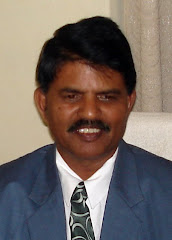

Chitradurga District English Teachers' Club
Residence at the time of the award: China
Prize motivation: "for his long and non-violent struggle for fundamental human rights in China"

The Nobel Peace Prize 2010 was awarded to Liu Xiaobo "for his long and non-violent struggle for fundamental human rights in China".
http://nobelprize.org/nobel_prizes/peace/laureates/2010/
 | English Norwegian |
The Norwegian Nobel Committee has decided to award the Nobel Peace Prize for 2010 to Liu Xiaobo for his long and non-violent struggle for fundamental human rights in China. The Norwegian Nobel Committee has long believed that there is a close connection between human rights and peace. Such rights are a prerequisite for the "fraternity between nations" of which Alfred Nobel wrote in his will.
Over the past decades, China has achieved economic advances to which history can hardly show any equal. The country now has the world's second largest economy; hundreds of millions of people have been lifted out of poverty. Scope for political participation has also broadened.
China's new status must entail increased responsibility. China is in breach of several international agreements to which it is a signatory, as well as of its own provisions concerning political rights. Article 35 of China's constitution lays down that "Citizens of the People's Republic of China enjoy freedom of speech, of the press, of assembly, of association, of procession and of demonstration". In practice, these freedoms have proved to be distinctly curtailed for China's citizens.
For over two decades, Liu Xiaobo has been a strong spokesman for the application of fundamental human rights also in China. He took part in the Tiananmen protests in 1989; he was a leading author behind Charter 08, the manifesto of such rights in China which was published on the 60th anniversary of the United Nations' Universal Declaration of Human Rights, the 10th of December 2008. The following year, Liu was sentenced to eleven years in prison and two years' deprivation of political rights for “inciting subversion of state power". Liu has consistently maintained that the sentence violates both China's own constitution and fundamental human rights.
The campaign to establish universal human rights also in China is being waged by many Chinese, both in China itself and abroad. Through the severe punishment meted out to him, Liu has become the foremost symbol of this wide-ranging struggle for human rights in China.
Oslo, October 8, 2010
http://nobelprize.org/nobel_prizes/peace/laureates/2010/press.html
Congratulations Sir.
Mario Vargas Llosa
Born: 28 March 1936, Arequipa, Peru
Prize motivation: "for his cartography of structures of power and his trenchant images of the individual's resistance, revolt, and defeat"

The Nobel Prize in Literature 2010 was awarded to Mario Vargas Llosa "for his cartography of structures of power and his trenchant images of the individual's resistance, revolt, and defeat".
http://nobelprize.org/nobel_prizes/literature/laureates/2010/press.html
 |
|
The Permanent Secretary
Press Release
7 October 2010
The Nobel Prize in Literature for 2010 is awarded to the Peruvian author Mario Vargas Llosa
"for his cartography of structures of power and his trenchant images of the individual’s resistance, revolt, and defeat".
 |
|
Mario Vargas Llosa was born on March 28, 1936 in Arequipa, Peru to Ernesto Vargas Maldonado and Dora Llosa Ureta. After his parents divorced, he grew up with his mother and grandfather in the city of Cochabamba in Bolivia. The family moved to Piura, Peru in 1946 where his grandfather held an appointment as a civil servant. His parents were reunited in 1947 and settled in Lima. Mario Vargas Llosa went to a Catholic school in Lima. Later his father sent him to the military school, Leoncio Prado. After graduating from Colegio Nacional San Miguel in Piura, Mario Vargas Llosa studied law and literature in Lima and Madrid. In 1955, he married Julia Urquidi. In 1959, he moved to Paris where he worked as a language teacher and as a journalist for Agence-France-Presse and the national television service of France. As an author, he had an international breakthrough with the novel La ciudad y los perros (1963; The Time of the Hero, 1966). This novel, which builds on experiences from Leoncio Prado, was considered controversial in his home land. A thousand copies were burnt publicly by officers from Leoncio Prado. In 1964 Mario Vargas Llosa divorced Julia Urquidi. The following year, he married his cousin, Patricia Llosa. After having lived alternately in Paris, Lima, London and Barcelona, he returned to Lima in 1974. In 1975 he was elected to the Peruvian Academy. He has lectured and taught at a number of universities in the USA, South America and Europe. In 1990 he ran for the Presidency representing the FREDEMO alliance in Peru, but lost the election. In 1994 he was elected to the Spanish Academy, where he took his seat in 1996. In recent years he has lived in Barcelona, Madrid, Lima, Paris and London. His well known works include Conversación en la catedral (1969; Conversation in the Cathedral, 1975), La guerra del fin del mundo (1981; The War of the End of the World, 1984) and La fiesta del chivo (2000; The Feast of the Goat, 2001). He is also a noted journalist and essayist.
http://nobelprize.org/nobel_prizes/literature/laureates/2010/bio-bibl.html
Links to other sites
Mario Vargas Llosa's official web site
On Mario Vargas Llosa from Pegasos Author's Calendar
 |
| Mario Vargas Llosa signing books. Photo taken in Pietrasanta, Italy, on June 13, 2010. Photo: Daniele Devoti, Creative Commons |
 |
| Mario Vargas Llosa (left) with Mexican author Carlos Fuentes (right) at Harvard University. Photo taken in April 1979. Photo: Mario Vargas Llosa official web site |
 |
| Mario Vargas Llosa with his daughter Morgana. Photo taken in 1979. Photo: Mario Vargas Llosa official web site |
 |
| Mario Vargas Llosa with his son Alvaro. Photo taken in Cuzco, 1978. Photo: Mario Vargas Llosa official web site |
 |
| Mario Vargas Llosa signing books, together with his sons, Gonzalo and Alvaro. Photo taken in Sevilla in April 1974. Photo: Mario Vargas Llosa official web site |
 |
| Mario Vargas Llosa (right) and Gabriel García Márquez (far left). Photo taken in 1972. Photo: Mario Vargas Llosa official web site |
 |
| From left to right: José Miguel Oviedo, Mario Vargas Llosa, Marta de Oviedo, Mercedes de García Márquez and Gabriel García Márquez. Photo taken in Lima, 1967. Photo: Mario Vargas Llosa official web site |
 |
| Back row from left: Simone de Beauvoir, Jean Paul Sartre, Mario Vargas Llosa and Daniel Mayer defending Peruvian political prisoners. Photo taken in Paris, April 1967. Photo: M.C. Orive Credits: Mario Vargas Llosa official web site |
 |
| Mario Vargas Llosa and his wife Patricia. Photo taken in 1967. Photo: Mario Vargas Llosa official web site |
 |
| Mario Vargas Llosa, as a child, together with his mother. Photo: Mario Vargas Llosa official web site |





